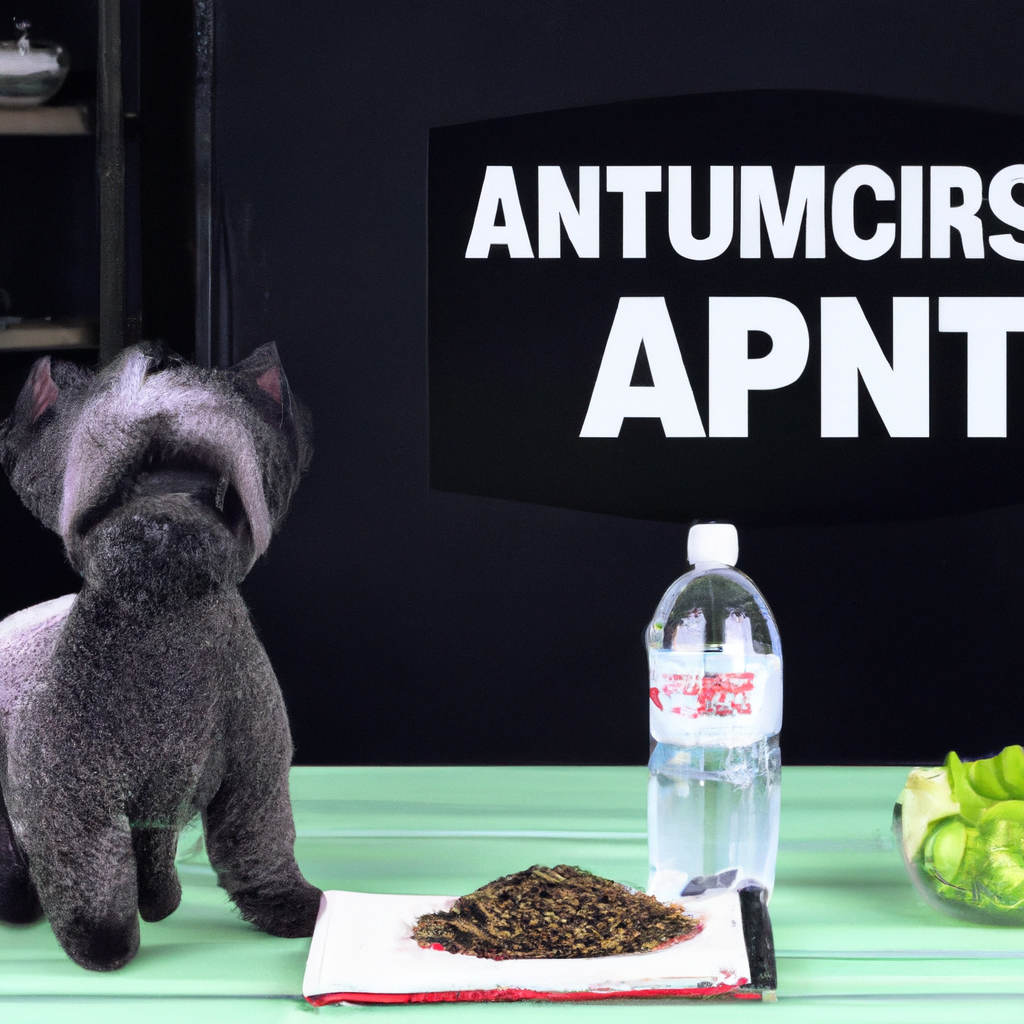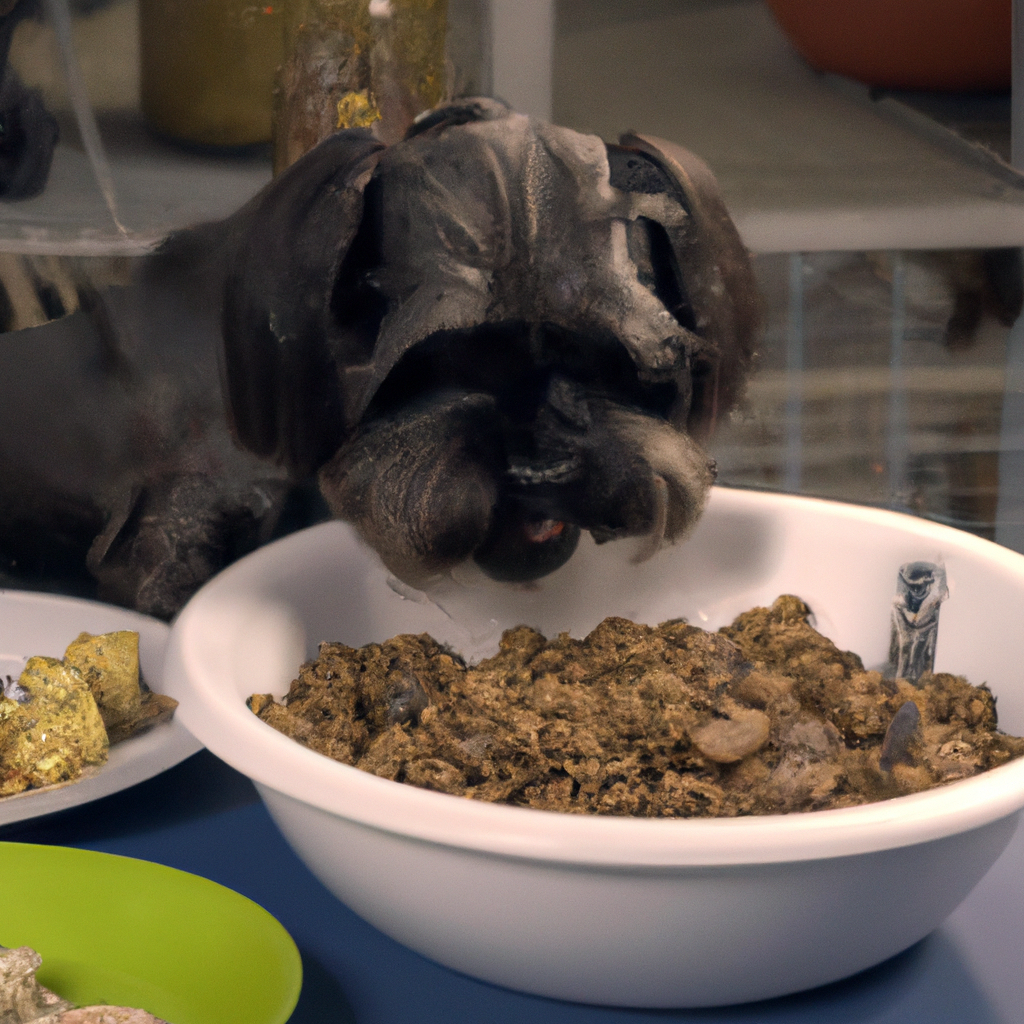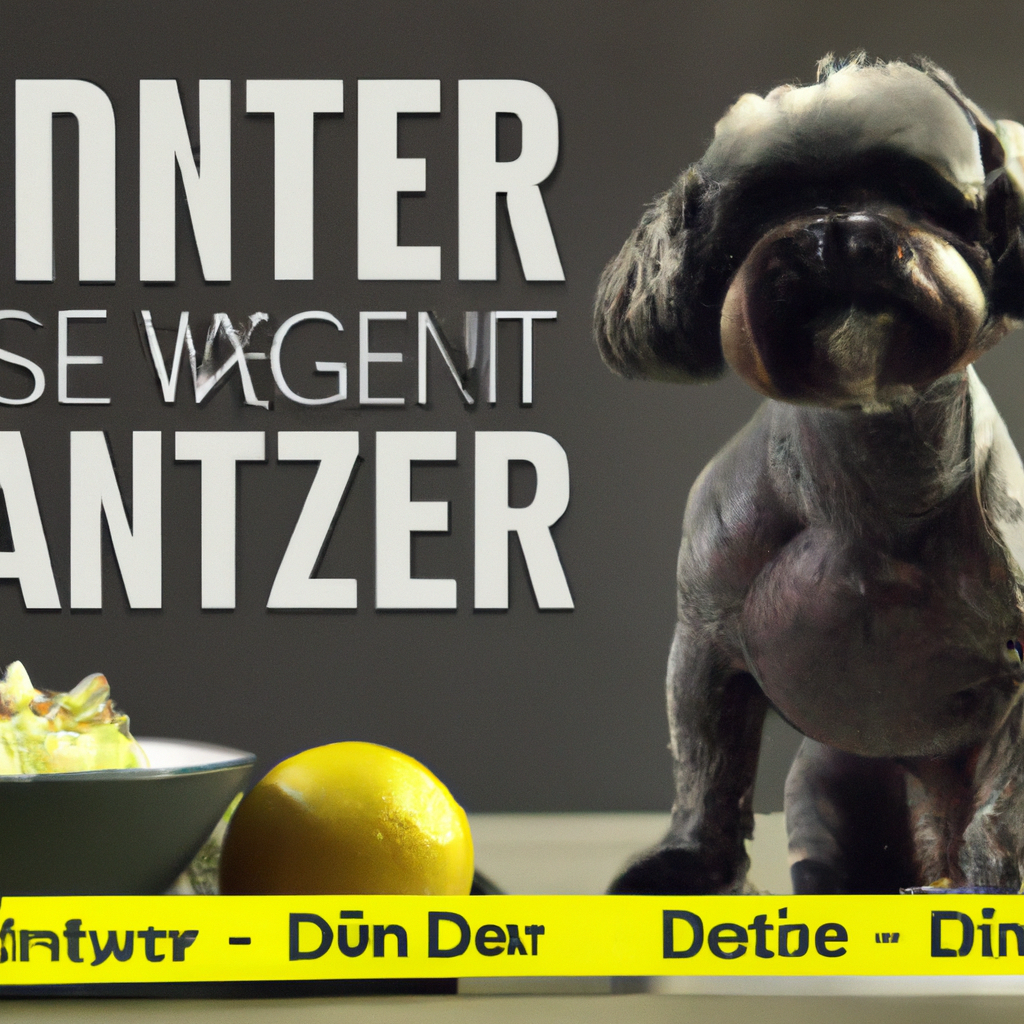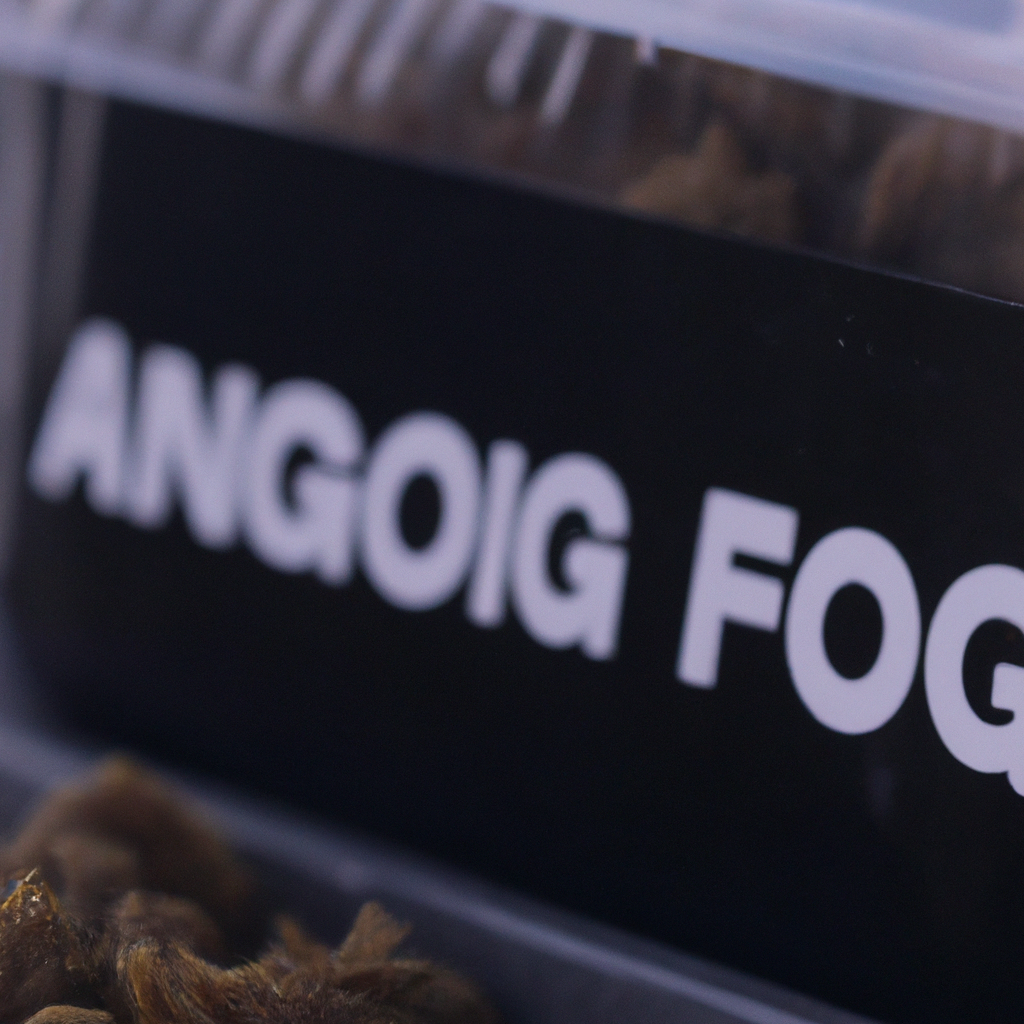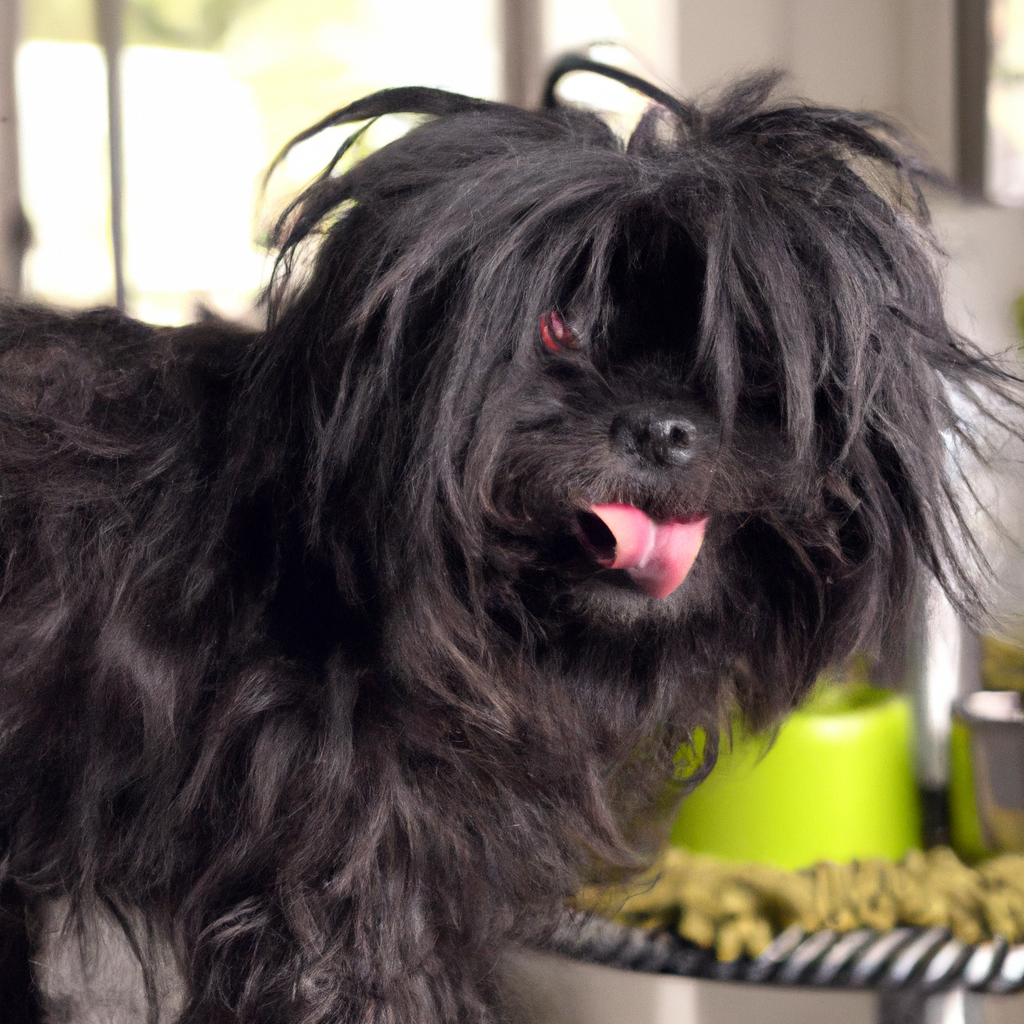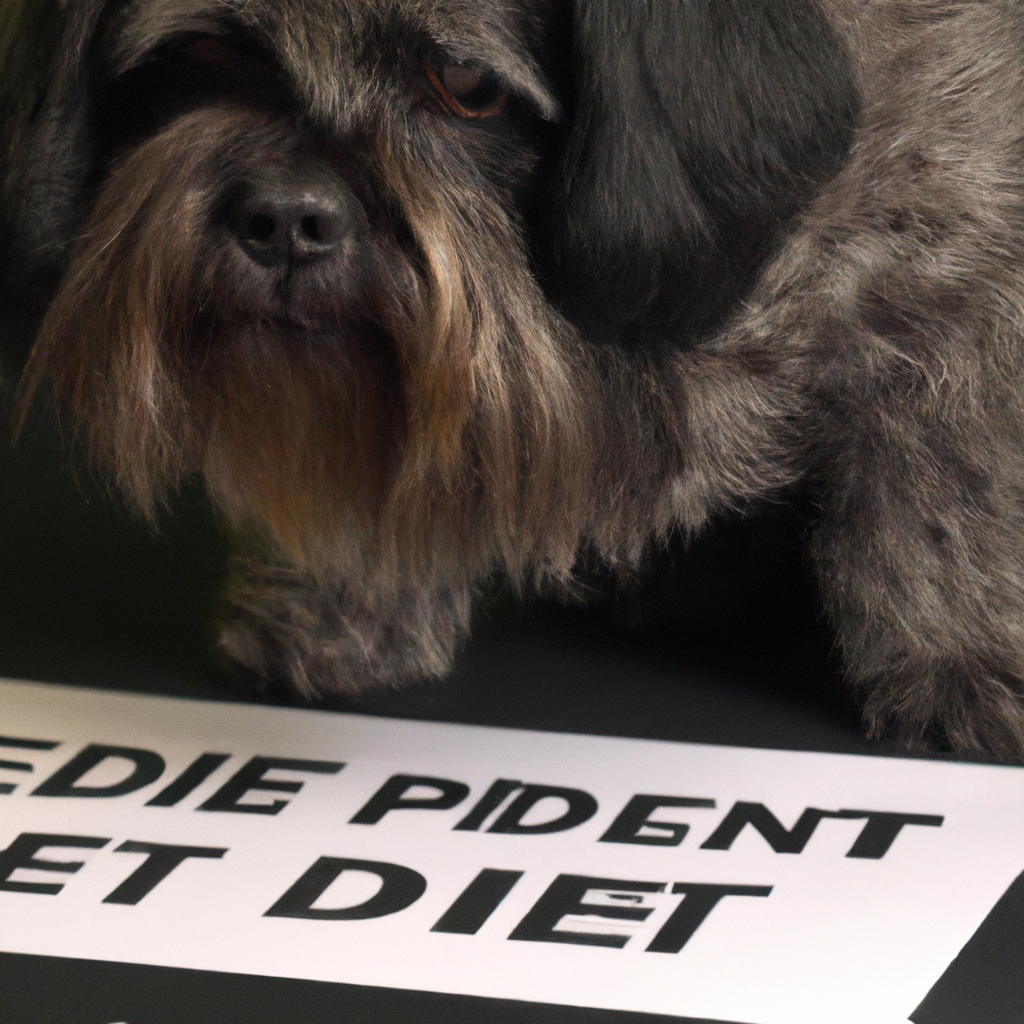The Affenpinscher, also known as the “Monkey Terrier”, is a small but sturdy dog breed that requires a balanced and nutritious diet to maintain optimal health. Nutrition tips to improve an Affenpinscher’s health include providing a diet rich in high-quality proteins, healthy fats, and a variety of fruits and vegetables. It’s also important to monitor their calorie intake to prevent obesity, as this breed can be prone to weight gain. Regularly scheduled meals, rather than free feeding, can help control their weight and prevent digestive issues. Additionally, due to their small size, they may benefit from smaller, more frequent meals. Always ensure they have access to fresh water and avoid feeding them human food, as some can be harmful to dogs.
Understanding the Nutritional Needs of Your Affenpinscher
Affenpinschers, affectionately known as “Monkey Dogs,” are small but mighty creatures with a big personality. As a pet parent to an Affenpinscher, it’s essential to understand their unique nutritional needs to ensure they live a long, healthy, and happy life.
Affenpinschers are known for their high energy levels, which means they require a diet rich in proteins and carbohydrates to fuel their active lifestyle. Proteins are the building blocks of their body, supporting muscle development and maintenance, while carbohydrates provide the energy they need to keep up with their playful antics.
However, it’s not just about feeding them any protein or carbohydrate. Quality matters. Opt for high-quality animal proteins like chicken, beef, or fish. These are easier for your Affenpinscher to digest and contain the essential amino acids they need. When it comes to carbohydrates, complex ones such as sweet potatoes, brown rice, or oats are the best choices. They release energy slowly, keeping your Affenpinscher energized throughout the day.
Fats are another crucial part of your Affenpinscher’s diet. They not only provide energy but also support brain development, keep their skin and coat healthy, and enhance the taste of their food. However, too much fat can lead to obesity, a common issue in small breeds like Affenpinschers. Therefore, it’s essential to strike a balance. Look for foods with healthy fats like omega-3 and omega-6 fatty acids.
Don’t forget about vitamins and minerals. They play a vital role in various bodily functions, from bone health to immune function. Most high-quality commercial dog foods are fortified with the necessary vitamins and minerals. However, it’s always a good idea to consult with your vet to see if your Affenpinscher could benefit from any additional supplements.
Feeding your Affenpinscher the right amount of food is just as important as what you feed them. Overfeeding can lead to weight gain and associated health problems. The amount of food your Affenpinscher needs depends on their age, size, and activity level. Puppies usually require more food than adults as they are growing and developing. Similarly, an active Affenpinscher will need more calories than a less active one.
Hydration is another key aspect of your Affenpinscher’s health. Ensure they always have access to fresh, clean water. Dehydration can lead to serious health issues, including kidney problems.
Lastly, remember that every Affenpinscher is unique. What works for one might not work for another. It’s always best to consult with your vet to create a personalized nutrition plan for your Affenpinscher. They can take into account any specific health concerns, allergies, or dietary restrictions your Affenpinscher may have.
In conclusion, a balanced diet rich in high-quality proteins, carbohydrates, and fats, along with the right amount of vitamins and minerals, is key to improving your Affenpinscher’s health. Pay attention to portion sizes to prevent overfeeding and ensure they stay hydrated. And always consult with your vet for personalized advice. With the right nutrition, your Affenpinscher can enjoy a vibrant and healthy life.
Top 10 Superfoods for Your Affenpinscher’s Health
Affenpinschers, affectionately known as “Monkey Dogs,” are small but mighty creatures with a big personality. As a pet parent, you want to ensure that your Affenpinscher is not only happy but also healthy. One of the best ways to do this is by providing them with a balanced diet packed with superfoods. Here are the top ten superfoods that can significantly improve your Affenpinscher’s health.
First on the list is fish. Fish, particularly salmon, is a fantastic source of omega-3 fatty acids, which are essential for your Affenpinscher’s brain development and can help keep their coat shiny and healthy. It’s also a great source of protein, which is vital for their muscle development.
Next up is sweet potatoes. These are packed with vitamins A, C, and B6, as well as fiber, which can aid in digestion. They’re also low in fat, making them an excellent choice for Affenpinschers who need to watch their weight.
Blueberries are another superfood that can do wonders for your Affenpinscher’s health. They’re rich in antioxidants, which can help protect your dog’s cells from damage. They’re also a good source of fiber and vitamin C.
Moving on, we have carrots. These are not only a great low-calorie snack for your Affenpinscher but also a fantastic source of beta-carotene, which can help promote good eye health.
Pumpkin is another superfood that’s great for your Affenpinscher’s digestive health. It’s high in fiber, which can help regulate your dog’s bowel movements, and it’s also a good source of vitamins A and C.
Next on the list is quinoa. This grain is a complete protein, meaning it contains all nine essential amino acids. It’s also gluten-free and easy to digest, making it a great choice for Affenpinschers with sensitive stomachs.
Spinach is another superfood that’s packed with nutrients. It’s high in vitamins A, C, and K, as well as iron and calcium. It’s also a good source of fiber, which can help keep your Affenpinscher feeling full and satisfied.
Eggs are another excellent source of protein for your Affenpinscher. They’re also rich in vitamins A and B12, as well as selenium and riboflavin. Plus, they’re easy to digest, making them a great choice for dogs with sensitive stomachs.
Next up is apples. These are a great source of vitamins A and C, as well as fiber. They’re also low in fat and calories, making them a great snack for your Affenpinscher.
Last but not least, we have broccoli. This vegetable is high in vitamins C and K, as well as fiber. It’s also a good source of potassium and calcium.
In conclusion, incorporating these superfoods into your Affenpinscher’s diet can significantly improve their health. However, it’s important to remember that every dog is unique, and what works for one may not work for another. Therefore, it’s always best to consult with your vet before making any significant changes to your dog’s diet. With the right nutrition, your Affenpinscher can live a long, healthy, and happy life.
Balancing Your Affenpinscher’s Diet for Optimal Health
Affenpinschers, affectionately known as “Monkey Dogs,” are small but energetic breeds that require a balanced diet to maintain their health and vitality. As a pet owner, it’s essential to understand that your Affenpinscher’s nutritional needs may differ from those of other breeds. Here are some nutrition tips to help improve your Affenpinscher’s health.
Firstly, it’s crucial to understand that Affenpinschers, like all dogs, require a balanced diet of proteins, carbohydrates, fats, vitamins, and minerals. Proteins are particularly important for these active little dogs, as they help to build and repair muscles and tissues. Look for high-quality dog foods that list real meat, such as chicken, beef, or fish, as the first ingredient.
However, while proteins are important, they shouldn’t make up the entirety of your Affenpinscher’s diet. Carbohydrates provide your dog with the energy they need to stay active and playful. Whole grains like brown rice or oats are excellent sources of carbohydrates. They’re also easier on your dog’s digestive system than refined grains.
Fats, too, play a vital role in your Affenpinscher’s diet. They provide energy, help absorb vitamins, and contribute to a healthy coat and skin. Omega-3 and Omega-6 fatty acids, found in fish and flaxseed oil, are particularly beneficial. But remember, fats should be given in moderation as excessive intake can lead to obesity.
Speaking of moderation, it’s important to monitor your Affenpinscher’s portion sizes. These dogs are small, and it can be easy to overfeed them. Overfeeding can lead to obesity, which can cause a host of health problems, including heart disease and diabetes. To avoid this, measure your dog’s food carefully and avoid giving them too many treats.
In addition to a balanced diet, your Affenpinscher needs plenty of fresh water. Dehydration can lead to serious health problems, so make sure your dog always has access to clean, fresh water.
Vitamins and minerals are also essential for your Affenpinscher’s health. They support various bodily functions, including bone growth, vision, and immune system function. Most high-quality dog foods will contain the necessary vitamins and minerals your dog needs. However, if you’re unsure, it’s always a good idea to consult with your vet.
Lastly, remember that every Affenpinscher is unique. What works for one dog may not work for another. Factors such as age, activity level, and health status can all affect your dog’s nutritional needs. For example, puppies need more protein and fat to support their growth, while older dogs may need fewer calories to prevent weight gain.
In conclusion, feeding your Affenpinscher a balanced diet is key to their health and well-being. By providing them with the right mix of proteins, carbohydrates, and fats, and by monitoring their portion sizes, you can help ensure that your Affenpinscher stays healthy and happy. And remember, if you’re ever unsure about your dog’s nutritional needs, it’s always best to consult with a vet. They can provide you with personalized advice based on your dog’s specific needs. With the right nutrition, your Affenpinscher can lead a long, active, and healthy life.
The Role of Vitamins and Minerals in Your Affenpinscher’s Diet
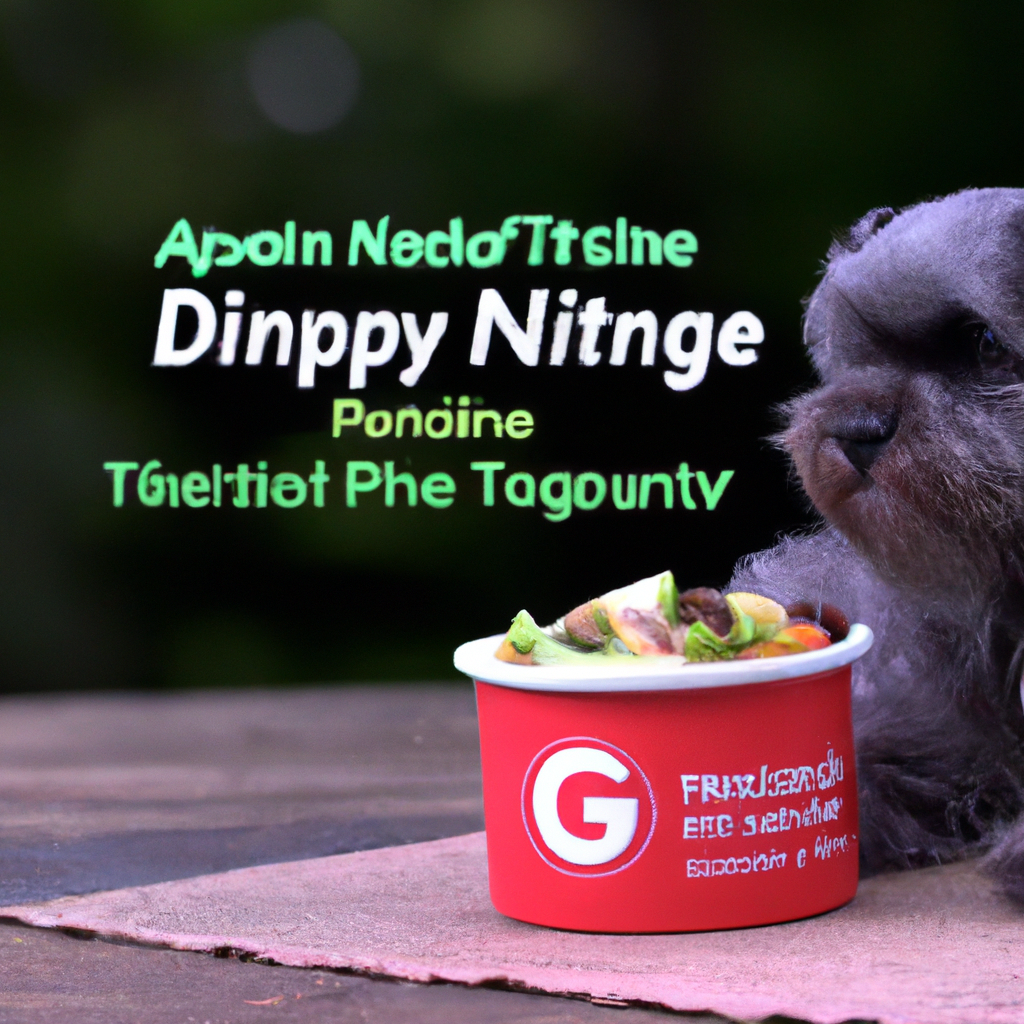
Affenpinschers, affectionately known as “Monkey Dogs,” are small but mighty creatures with a playful and adventurous spirit. As a pet parent to an Affenpinscher, you want to ensure that your furry friend is getting the best nutrition possible to support their health and vitality. One of the key components of a balanced diet for your Affenpinscher is the right mix of vitamins and minerals.
Vitamins and minerals play a crucial role in your Affenpinscher’s diet. They are essential for maintaining a healthy immune system, promoting growth and development, and supporting overall well-being. Without them, your Affenpinscher could suffer from a variety of health issues, including poor coat condition, weakened immunity, and slowed growth.
Let’s start with vitamins. Vitamins A, B, C, D, E, and K are all essential for your Affenpinscher’s health. Vitamin A is vital for maintaining healthy skin and coat, while B vitamins are necessary for energy production and nervous system function. Vitamin C is an antioxidant that helps protect the body from harmful free radicals, and Vitamin D is essential for bone health. Vitamin E supports the immune system, and Vitamin K is necessary for blood clotting.
Now, onto minerals. Minerals like calcium, phosphorus, potassium, and magnesium are equally important. Calcium and phosphorus are necessary for strong bones and teeth. Potassium helps maintain fluid balance and nerve function, while magnesium supports muscle and nerve function.
So, how can you ensure your Affenpinscher is getting these essential vitamins and minerals? The answer lies in a balanced, varied diet.
Commercial dog foods are often fortified with the necessary vitamins and minerals your Affenpinscher needs. However, it’s important to choose a high-quality brand that uses natural ingredients and avoids fillers and artificial additives. Look for a brand that lists real meat as the first ingredient, and includes a variety of fruits and vegetables.
In addition to commercial dog food, you can supplement your Affenpinscher’s diet with fresh, whole foods. Lean meats, fish, eggs, and dairy products are excellent sources of protein and B vitamins. Fruits and vegetables like carrots, sweet potatoes, blueberries, and spinach are packed with vitamins A, C, and K.
However, it’s important to remember that not all human foods are safe for dogs. Always consult with your vet before introducing new foods into your Affenpinscher’s diet.
Supplements can also be a useful addition to your Affenpinscher’s diet, especially if they have specific health concerns. For example, glucosamine and chondroitin can support joint health, while omega-3 fatty acids can promote a shiny coat and healthy skin. Again, it’s best to consult with your vet before starting any new supplement regimen.
In conclusion, a balanced diet rich in essential vitamins and minerals is key to maintaining your Affenpinscher’s health. By choosing high-quality commercial dog food, supplementing with fresh, whole foods, and considering the use of supplements, you can ensure your Affenpinscher is getting the nutrition they need to thrive. Remember, every dog is unique, so it’s important to tailor your Affenpinscher’s diet to their specific needs and consult with your vet regularly. With the right nutrition, your Affenpinscher can enjoy a long, healthy, and happy life by your side.
The Importance of Hydration in Affenpinscher’s Health
Affenpinschers, affectionately known as “Monkey Dogs,” are small but mighty creatures with a playful and adventurous spirit. As a pet parent to an Affenpinscher, it’s essential to understand the unique nutritional needs of this breed to ensure their optimal health and longevity. One aspect of nutrition that often gets overlooked is hydration. Hydration plays a crucial role in maintaining your Affenpinscher’s health, and it’s more than just providing a bowl of water.
Water is the foundation of life for all living beings, including our furry friends. It aids in digestion, nutrient absorption, and waste elimination. It also helps regulate body temperature, lubricate joints, and maintain healthy skin and coat. Without adequate hydration, your Affenpinscher could face serious health issues, including kidney disease and urinary tract infections.
Affenpinschers, like all dogs, should have constant access to fresh, clean water. However, simply providing water isn’t enough. It’s important to monitor your dog’s water intake to ensure they’re drinking enough. The general rule of thumb is that dogs should drink about an ounce of water per pound of body weight each day. For Affenpinschers, who typically weigh between 7 and 9 pounds, this equates to about a cup of water daily.
However, this amount can vary depending on several factors. For instance, if your Affenpinscher is more active or spends a lot of time outdoors in hot weather, they may require more water. Similarly, if they eat a lot of dry food, they’ll need more water to help with digestion. On the other hand, if your Affenpinscher eats primarily wet food, which is about 70-80% water, they may require less.
It’s also important to recognize the signs of dehydration in your Affenpinscher. These can include lethargy, dry gums, and a loss of skin elasticity. If you suspect your dog is dehydrated, it’s crucial to get them to a vet as soon as possible.
While water is the best source of hydration for your Affenpinscher, there are other ways to ensure they’re getting enough fluids. One way is to incorporate wet food into their diet. As mentioned earlier, wet food has a high water content, which can help keep your dog hydrated. Another option is to add a splash of low-sodium broth to their dry food. This not only increases their fluid intake but also makes their food more appealing.
You can also encourage your Affenpinscher to drink more water by making it fun. Consider investing in a dog water fountain, which can stimulate your dog’s interest in drinking water. Alternatively, you can freeze treats in ice cubes for a refreshing and hydrating snack.
In conclusion, hydration is a vital aspect of your Affenpinscher’s health. By ensuring they have constant access to clean water, monitoring their water intake, recognizing signs of dehydration, and incorporating other sources of hydration into their diet, you can help maintain your Affenpinscher’s health and vitality. Remember, when it comes to your furry friend’s health, every drop counts!
How to Avoid Common Nutritional Deficiencies in Affenpinschers
Affenpinschers, affectionately known as “Monkey Dogs,” are small but sturdy dogs known for their distinctive appearance and playful nature. As a pet parent to an Affenpinscher, it’s essential to understand that their nutritional needs are as unique as their personalities. Ensuring they receive a balanced diet can significantly improve their health and longevity. Here are some nutrition tips to help you avoid common nutritional deficiencies in Affenpinschers.
Firstly, it’s crucial to understand that Affenpinschers, like all dogs, require a balanced diet of proteins, carbohydrates, fats, vitamins, and minerals. Proteins are particularly important for these energetic little dogs, as they help to build and repair muscles and tissues. High-quality sources of protein such as chicken, beef, or fish should make up a significant portion of their diet.
However, it’s not just about the quantity of protein, but also the quality. Feeding your Affenpinscher low-quality protein sources can lead to deficiencies in essential amino acids, which can impact their overall health. Therefore, always opt for high-quality, whole food sources of protein.
Carbohydrates are another essential part of an Affenpinscher’s diet. They provide the energy these active dogs need to fuel their playful antics. However, it’s important to choose complex carbohydrates like sweet potatoes or brown rice, which release energy slowly and help to maintain stable blood sugar levels. Avoid simple carbohydrates like sugars, which can lead to obesity and other health problems.
Fats are also crucial for Affenpinschers. They provide essential fatty acids, which are necessary for brain development, skin health, and coat shine. Omega-3 and Omega-6 fatty acids, found in fish and flaxseed oil, are particularly beneficial. However, like with all things, moderation is key. Too much fat can lead to obesity, so it’s important to balance it with other nutrients.
Vitamins and minerals are the final piece of the nutritional puzzle. They play a vital role in numerous bodily functions, from bone health to immune function. Deficiencies in certain vitamins and minerals can lead to serious health problems. For example, a lack of calcium can lead to bone disorders, while a deficiency in vitamin A can affect vision.
To ensure your Affenpinscher is getting all the vitamins and minerals they need, consider adding a high-quality dog multivitamin to their diet. Alternatively, you can provide a variety of fruits and vegetables, which are rich in these essential nutrients. However, always consult with your vet before adding any supplements to your dog’s diet.
Lastly, hydration is just as important as nutrition. Affenpinschers, like all dogs, need access to fresh, clean water at all times. Dehydration can lead to serious health problems, so make sure your furry friend always has plenty of water available.
In conclusion, providing a balanced diet for your Affenpinscher is crucial to avoid common nutritional deficiencies. By ensuring they get the right amounts of high-quality proteins, complex carbohydrates, healthy fats, and essential vitamins and minerals, you can significantly improve their health and wellbeing. Remember, every dog is unique, so it’s always best to consult with a vet or a canine nutritionist to determine the best diet for your Affenpinscher.
The Impact of Diet on Your Affenpinscher’s Skin and Coat Health
The health and vitality of your Affenpinscher, a small but robust breed, can be significantly influenced by their diet. This is particularly true when it comes to their skin and coat health. A well-balanced diet can help maintain a shiny, healthy coat and prevent skin issues, while a poor diet can lead to dull fur and skin problems.
Firstly, let’s delve into the importance of protein. Protein is a crucial component of your Affenpinscher’s diet as it provides the essential amino acids necessary for skin and coat health. It helps in the growth and repair of skin cells and hair follicles, ensuring a shiny, healthy coat. Foods rich in high-quality proteins such as chicken, beef, fish, and eggs should be included in your Affenpinscher’s diet.
Next, let’s talk about fats. While it’s easy to assume that fats are bad, certain types of fats are actually beneficial for your Affenpinscher’s skin and coat health. Omega-3 and Omega-6 fatty acids, found in fish oil and flaxseed, are particularly beneficial. These fats help to keep your Affenpinscher’s skin hydrated, preventing dryness and flakiness. They also give their coat a glossy sheen.
Vitamins and minerals also play a significant role in maintaining your Affenpinscher’s skin and coat health. Vitamins A and E are antioxidants that help protect skin cells from damage, while B vitamins help to promote a healthy coat. Zinc, on the other hand, is a mineral that aids in skin cell regeneration and maintains the skin’s natural oils.
Now, let’s not forget about fiber. While fiber doesn’t directly contribute to skin and coat health, it aids in digestion, ensuring that your Affenpinscher absorbs all the nutrients from their food. Foods rich in fiber include vegetables, fruits, and whole grains.
While it’s important to know what to include in your Affenpinscher’s diet, it’s equally important to know what to avoid. Foods high in sugar can lead to inflammation, which can exacerbate skin issues. Similarly, foods with artificial additives can cause allergic reactions, leading to skin irritations.
It’s also worth noting that each Affenpinscher is unique, and what works for one may not work for another. Some may have food allergies or sensitivities that can affect their skin and coat health. If you notice any changes in your Affenpinscher’s skin or coat, such as excessive itching, redness, or hair loss, it’s best to consult with a veterinarian. They can help identify any potential food allergies or sensitivities and recommend a suitable diet.
In conclusion, a well-balanced diet plays a crucial role in maintaining your Affenpinscher’s skin and coat health. By providing your furry friend with a diet rich in high-quality proteins, beneficial fats, essential vitamins and minerals, and fiber, you can ensure they have a shiny, healthy coat and healthy skin. Remember to avoid foods high in sugar and artificial additives, and always consult with a veterinarian if you notice any changes in your Affenpinscher’s skin or coat. After all, a healthy Affenpinscher is a happy Affenpinscher.
The Benefits of Organic Food for Your Affenpinscher’s Health
Affenpinschers, affectionately known as “Monkey Dogs,” are small but mighty creatures with a big personality. As a pet parent, you want to ensure that your Affenpinscher is not only happy but also healthy. One of the best ways to do this is by paying close attention to their diet. Just like humans, dogs can greatly benefit from a diet rich in organic food.
Organic food, free from harmful pesticides and synthetic fertilizers, can significantly improve your Affenpinscher’s health. It’s packed with essential nutrients that are often more abundant than in conventionally grown food. These nutrients, including antioxidants, can help boost your dog’s immune system, making them more resistant to diseases.
Feeding your Affenpinscher organic food can also help maintain their ideal weight. Obesity is a common problem among dogs, and it can lead to serious health issues like diabetes and heart disease. Organic food is typically lower in calories and higher in quality nutrients, which can help your dog feel fuller for longer and reduce their overall calorie intake.
Moreover, organic food can improve your Affenpinscher’s digestion. Many dogs suffer from digestive issues, which can cause discomfort and lead to more serious health problems. Organic food is easier for dogs to digest because it’s free from artificial additives and preservatives that can upset their stomach.
Another benefit of organic food is that it can improve your Affenpinscher’s skin and coat health. Many dogs suffer from skin allergies and conditions, which can cause discomfort and affect their quality of life. Organic food is free from artificial colors and flavors, which are common triggers for these conditions. Plus, it’s rich in essential fatty acids that can help keep your dog’s skin healthy and their coat shiny.
Feeding your Affenpinscher organic food can also help improve their dental health. Many conventional dog foods are high in sugar, which can lead to dental problems like tooth decay and gum disease. Organic food is typically lower in sugar, which can help keep your dog’s teeth and gums healthy.
Lastly, organic food can help improve your Affenpinscher’s energy levels. Many conventional dog foods are high in fillers and low-quality ingredients that can leave your dog feeling sluggish. Organic food is packed with high-quality nutrients that can help boost your dog’s energy levels and keep them active and playful.
In conclusion, feeding your Affenpinscher organic food can provide numerous health benefits. It’s packed with essential nutrients, can help maintain their ideal weight, improve their digestion, skin and coat health, dental health, and energy levels. However, it’s important to remember that every dog is unique, and what works for one might not work for another. Therefore, it’s always best to consult with your vet before making any significant changes to your dog’s diet. They can provide personalized advice based on your Affenpinscher’s specific needs and health conditions. After all, a healthy dog is a happy dog, and there’s nothing more rewarding than seeing your Affenpinscher thrive.In conclusion, to improve an Affenpinscher’s health, it is crucial to provide a balanced diet rich in proteins, carbohydrates, fats, vitamins, and minerals. Regular feeding schedules, portion control, and avoiding harmful foods like chocolate, grapes, and onions are also essential. Including high-quality commercial dog food or home-cooked meals can ensure the dog gets the necessary nutrients. Regular vet check-ups can help monitor the dog’s health and adjust the diet as needed. Hydration is also vital for the dog’s overall health. Therefore, maintaining proper nutrition is key to enhancing the health and longevity of an Affenpinscher.
